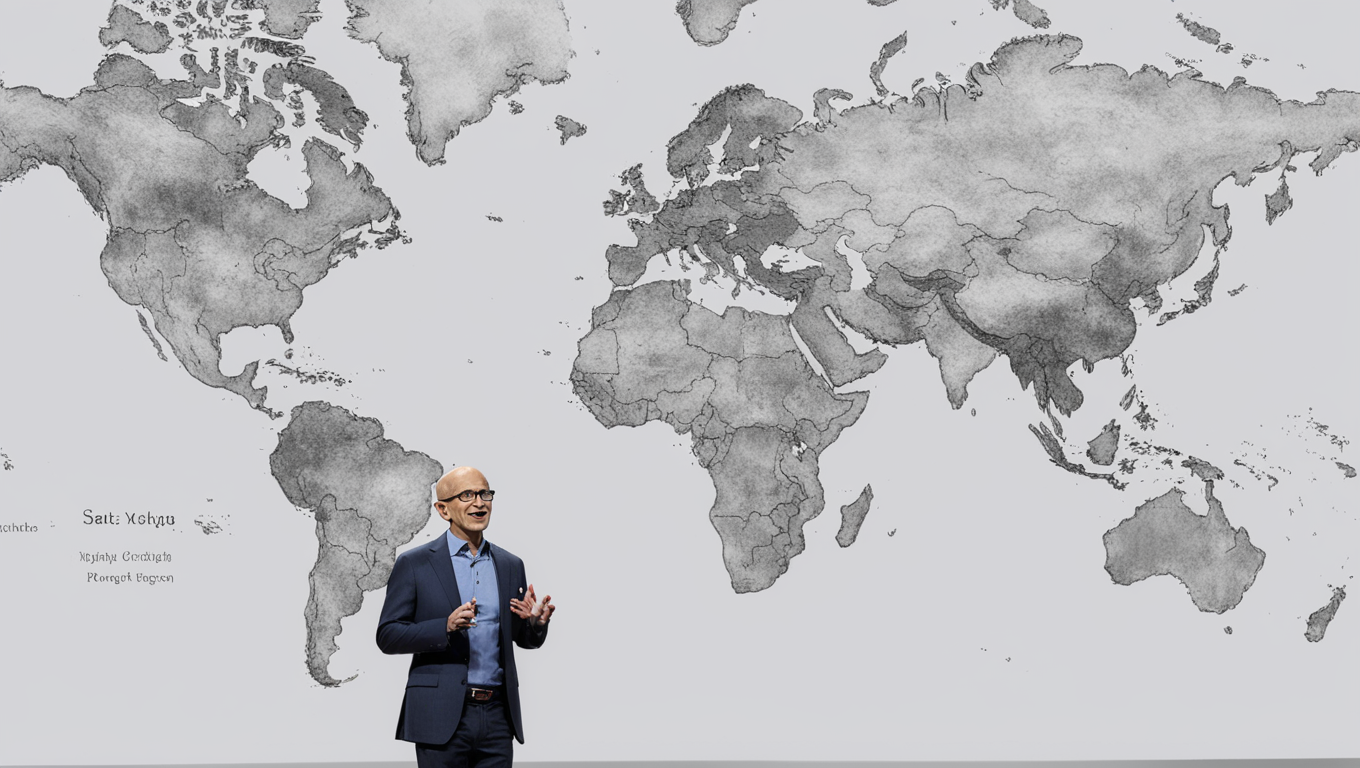Microsoft CEO, Satya Nadella, has stated that the company is not focused on China as a domestic market. While Microsoft has notable Chinese customers operating outside of China, such as Li Auto and Xiaomi, its main focus is on the global market excluding China. This statement comes amid the strained business relationship between the US and China, particularly when it comes to technologies like networking equipment, semiconductors, and internet services.
Microsoft has a more visible presence in China compared to some of its peers. Unlike Meta’s Facebook and Instagram apps, which do not officially work in China, and Google’s search engine, which is also unavailable, Microsoft’s Bing search engine has been accessible in China since 2009. Earlier this year, following the launch of an AI chatbot in Bing, it briefly became the top desktop search engine in China before being overtaken by Beijing-based Baidu.
Despite Microsoft’s presence in China, Nadella acknowledged that the company must follow the US government’s restrictions when it comes to doing business in China. He emphasized that Microsoft is compliant with the policy decisions made by the US government regarding trade, competition, and national security.
In terms of revenue, just over half of Microsoft’s sales in the third quarter came from clients in the US, with the US government being one of its major clients. While China does not contribute significantly to Microsoft’s revenue, the country plays a crucial role in manufacturing, particularly for Microsoft’s Surface PCs. Nadella stated that the main concern for Microsoft regarding China is any disruption to the supply chain.
Microsoft has faced some challenges in China recently. In August, LinkedIn stopped operating its InCareer app for professional users in mainland China due to fierce competition and a challenging macroeconomic climate. This move followed Microsoft’s announcement two years ago to shut down a localized version of its main app for users in China. Furthermore, last year, China reportedly ordered its government agencies and government-backed companies to replace foreign-made PCs with domestically-made machines running local operating systems.
Despite these challenges, Nadella remains optimistic about Microsoft’s position in the global market and its future in the field of artificial intelligence (AI). He believes that the majority of Microsoft’s business is in the United States, Europe, and the rest of Asia, and that China is not a major issue for the company at present.
In conclusion, while Microsoft has a presence in China and serves notable Chinese customers operating outside of the country, its main focus is on the global market excluding China. The company acknowledges the restrictions imposed by the US government and remains compliant. Despite facing challenges in China, Microsoft sees the majority of its business in other regions and views China as a potential disruptor to its supply chain rather than a major issue. With its strong foothold in the US and Europe, and its expanding presence in the field of AI, Microsoft is poised for long-term success.





Use the share button below if you liked it.